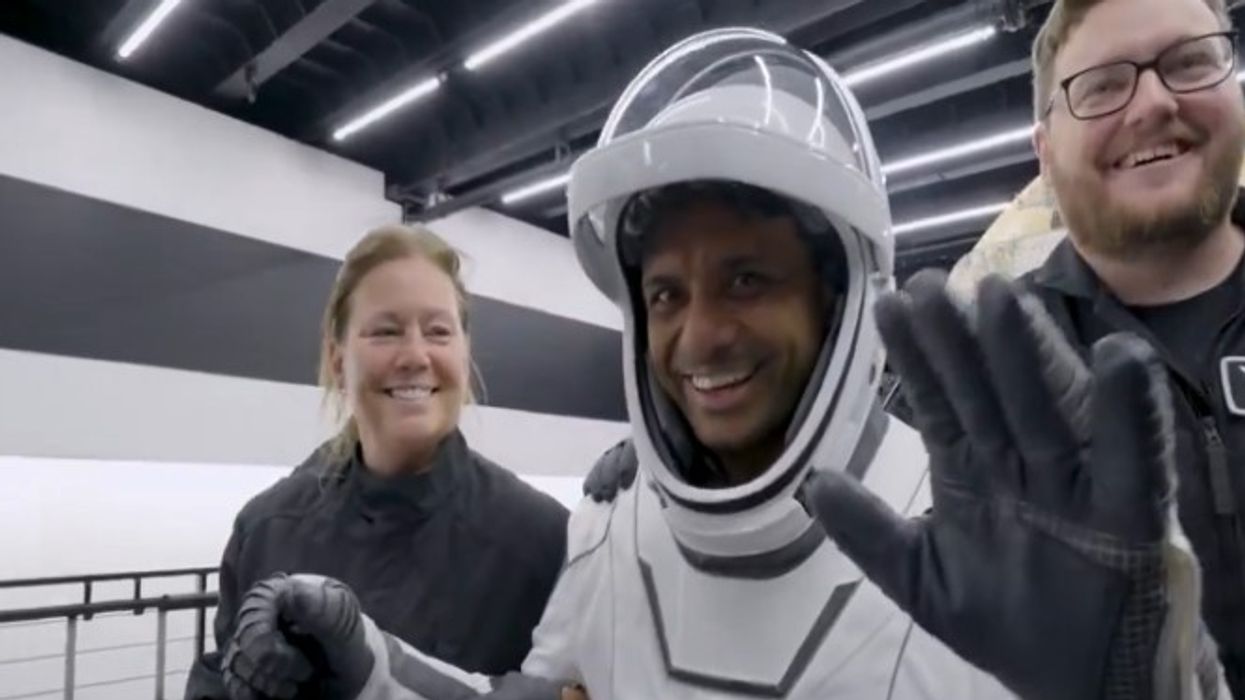INDIA’s Group Captain Shubhanshu Shukla returned to Earth on Tuesday aboard the Dragon spacecraft, after spending 18 days on the International Space Station (ISS). Along with scientific data and seed samples, the mission marked a key moment in India’s space journey.
The 39-year-old Indian Air Force officer and test pilot completed his first space mission as part of Axiom-4, a commercial flight supported by ISRO and NASA and operated by Axiom Space.
Shukla is the first Indian to board the ISS and the second Indian in space after Rakesh Sharma’s flight in 1984.
Early years and Air Force career
Born on 10 October 1985, a year after Sharma’s flight, Shukla grew up in Lucknow in a middle-class family. His sister Suchi Shukla recalled that a childhood visit to an air show sparked his interest. “As a child, he had once been to an air show and was fascinated by the speed and sound of the aircraft. That's when he first spoke about flying,” she said. “But of course, there was no telling at the time how quickly he would embrace his dream.”
He studied at City Montessori School (CMS) in Lucknow. His journey to the Indian Air Force began unexpectedly when a classmate applying to the National Defence Academy realised he was overage and passed on the application form to Shukla.
Commissioned into the Air Force in 2006, Shukla became a test pilot with over 2,000 hours of flying experience on aircraft such as the Su-30 MKI, MiG-29, Jaguar, and Dornier-228. He later completed an MTech in Aerospace Engineering from the Indian Institute of Science, Bengaluru.
Welcome back to Earth, #Ax4! Today the Dragon spacecraft successfully splashed down marking the end of their successful mission to the International Space Station. pic.twitter.com/eeAyPCmWgG
— Axiom Space (@Axiom_Space) July 15, 2025
Selected for Gaganyaan, joins Axiom-4
In 2023, Shukla was named one of four astronauts selected for India’s Gaganyaan programme, along with Prasanth Balkrishnan Nair, Angad Pratap, and Ajit Krishnan. The team trained at Russia’s Gagarin Cosmonaut Training Centre and at ISRO’s facility in Bengaluru.
Before Gaganyaan’s scheduled 2027 launch, Shukla was selected for the Ax-4 mission, making him the first Indian on a human spaceflight mission in 41 years.
Launch and life aboard ISS
Shukla launched aboard a SpaceX Falcon 9 rocket from Kennedy Space Center on 25 June. After entering orbit ten minutes later, he said in Hindi, “Kamaal ki ride thi” (“It was a great ride”) and added, “I have the Indian tricolour embossed on my shoulders that tells me I am with all of you.”
Known as “Shux” among his colleagues, he carried Indian food such as gajar ka halwa and moong dal ka halwa for his international crewmates. His choice of launch-day song was "Yun Hi Chala Chal" from the film Swades.
Shukla served as pilot on Axiom-4 alongside commander Peggy Whitson and mission specialists Slawosz Uznanski-Wisniewski (Poland) and Tibor Kapu (Hungary). The team conducted science experiments and also participated in outreach activities.
Seven Indian microgravity experiments
Shukla conducted seven India-led microgravity experiments in life sciences, agriculture, biotechnology, and cognitive research. “I am so proud that ISRO has been able to collaborate with national institutions all over the country and come up with some fantastic research, which I am doing here on the station,” he told Axiom’s chief scientist Lucie Low.
A key experiment involved planting moong and methi seeds in petri dishes, led by Ravikumar Hosamani (University of Agricultural Sciences, Dharwad) and Sudheer Siddapureddy (IIT Dharwad). Shukla monitored their growth and preserved the samples for return to Earth.
Another study focused on cyanobacteria and microalgae, being tested for their ability to generate food, oxygen, and biofuels in space. These may help future deep space missions.
Shukla also took part in stem cell research, examining whether supplements can help with injury repair in space. “It's been great to work in the Glove Box doing this research. I feel proud to be a bridge between scientists on Earth and the station,” he said.
He also performed a water demonstration in zero gravity. Creating a floating water bubble, he joked, “I've become a water bender here on the station,” as his commander showed how surface tension can bend light.
Farewell ceremony and return
On 13 July, Shukla and his Ax-4 crewmates joined the Expedition 73 astronauts for a farewell event. He thanked the ISS crew and ISRO for supporting India’s research and outreach efforts.
Shukla connected with Prime Minister Narendra Modi and Indian students using amateur radio during the mission. “It's not just my journey, it's India's,” he said.
At a launch watch party, CMS Lucknow student Geeta Gandhi Kingdon said, “From a curious young learner in our classrooms to a pioneering astronaut, Shux's story beautifully encapsulates our mission of 'Education for World Unity and Peace'.”
The Dragon ‘Grace’ spacecraft carrying Shukla splashed down near the California coast on Tuesday.
With Gaganyaan approaching and more space research opportunities ahead, Shukla’s experience is expected to contribute to India’s future human spaceflight plans.
As he said from the station: “I want each one of you to be part of this journey. Let us embark on India's human space programme together.”
(With inputs from agencies)




